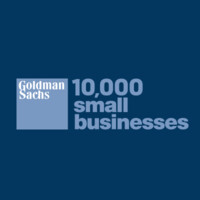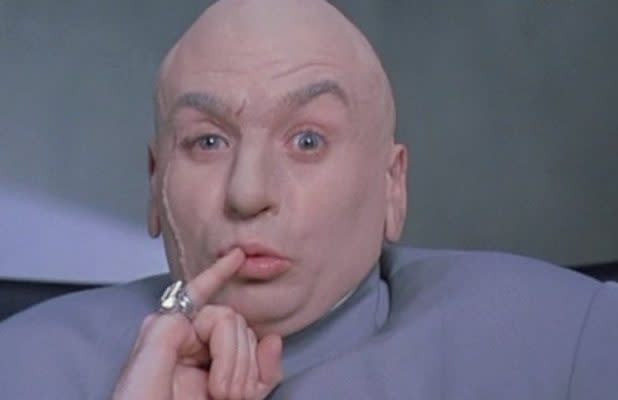
What helps you think?
That question has been on my mind a lot lately.
I’m heading into the last week of a 14-week program. I’ve been in the Goldman Sachs 10K Small Business program that’s offered here in Columbus.
A friend went through this program back in 2021 and encourage me to apply. I did, and then kind of forgot about it. It was at least a year since my application when I received an email inviting me to submit more information in advance of an interview.
Our cohort started in September, and we’ll “graduate” next week with a final two days of class work.
The experience has been a good one, and I’d recommend it to anyone who wants to grow their company and their personal business acumen while connecting with some cool people.
The program pushes you to think differently. We were encouraged to embrace what we’re good at and to be open-minded to new ideas. The curriculum was developed to provide you with the framework to look at your business with different perspectives.
Other key components included:
- Thinking about how to strategically build a team
- Understanding the financial aspect of business and how to leverage that knowledge to help you grow (this was HUGE for me)
- Craft (or refine) your business vision and values
- Creating a business that works to support your life and your long-term goals
To graduate, I will present my growth plan, the course deliverable that we’ve been working toward the entire 14 weeks.
Program info and opportunity to apply here.
Much of the coursework centers on understanding the financial aspect of business including what investors look for, and what a bank wants to see should you ever want financing.
Many small business owners I know, including many in our cohort, hadn’t thought much about this. We own and run tiny businesses and the thought of getting a bank loan or finding investors wasn’t on the radar. At all.
We don’t think about our businesses that way. Now I’m asking, why not?
One of the exercises had us play the role of lender. We evaluated financial reports and the growth plan presented with a loan request for 3 different companies. Our assignment: make a recommendation for an underwriter to continue the loan process.
Our recommendation had to be backed up with our rationale. We weren’t the final yes or no and that, for me, made it easier to be objective.
I went from “I want to give everyone the money” (the people pleaser in me always wants to say yes) to approving one for underwriting. Another was a no, with the third being a no but if they changed a few things related to their plan for growth, I could see saying yes.
It was eye-opening. How would people look at my financials and growth plan?
New perspective requires new thinking.
This past week I was on the other side of this exercise. We had to give a 3-minute pitch to a potential “investor or banker” for a loan. Our goal was to ask for a specific amount, explain what we’d do with the funds and share how we would provide a good return for the investor.
Essentially, we were expected to sell our idea and our ability to execute it. Oh, and no notes allowed. Not even a card with a few key points.
Yeah, after procrastinating for a week, I got busy. I practiced my pitch over and over and come Friday, I felt pretty good. Not confident about my ask, but I knew I could explain the financial info and why this would be good for my business, and for the investor.
I wanted 40K to create a new program to help small businesses raise their visibility and exposure as part of a lead-generation program.
Out of 20 people, I found out my request was middle of the pack dollar wise. We were put into groups of 5 to present with a business advisor before presenting to the larger group.
My jaw dropped when the first person presented. His request: 100 million dollars!
When I hear numbers like that I always get Austin Powers/Dr. Evil “one meeeelllion dollars” vibe.

He had a legit plan, and honestly, I can see him getting a loan. One of the other people in our group wanted 5 million the other 2: a 50K line of credit and a 90K loan request.
During a break, a friend in another breakout said no one in their group was asking for anything over 10K.
There are understandable reasons for some of the differences. Some of the participants have larger businesses doing 8+ million in revenue. Some are in industries where long-term contracts are the norm, so they already know they have 700K coming in next year.
My takeaway after hearing all the pitches?
I’ve been thinking way to SMALL.
During week 3, we were given “checks” of $50K. We had to use the money within one year in the business. No problem, right?
Then, we got a check for $500K. Same rules. That required a shift in how I thought about my business. And it was really exciting to think of the possibilities.
Near the end of that day, we were given “checks” for 5 million dollars. Same rules. With this money, my current business would be unrecognizable.
Driving home after giving my pitch, I recalled the earlier exercise and wondered why didn’t I consider giving the 5 million dollar idea, even in my pretend pitch?
I can give you lots of reasons, but the main one is that I didn’t even think about it. Not once did it cross my mind during preparation. It was only after the fact that the pretend check exercise came back to me.
Lack of imagination? Yeah, I’ll cop to that.
But mostly, lack of thought about what that looks like, and what it would take.
We tell ourselves that I’m fine only making $X, because I’m grateful for what I have, or I want time for my family or – and here’s my favorite – I want to help people who were like me starting out and that means keeping my prices low and my offers “reasonable”.
Yes, this makes assumptions about business models and income, but I know a bit of this will resonate because I’ve heard some of my clients and business peers say things like this.
To be completely transparent, I’ve said and thought these things too. I’m not judging anyone. I am encouraging you to think differently.
Think about what could be.
That’s where I’m at today. It requires being honest with myself and honest about what is possible and what I want.
Thinking big doesn’t mean you have to change who you are, or sacrifice your personal life. In fact, two people in our cohort who have the biggest businesses have companies that run without them being there every single day.
One of the them teaches a college course to engineers. Another is going to start an entirely new business as her growth opportunity as her business partner takes over the day to day of her current business. Another is setting up a real-estate investment firm to complement the work she does as a wealth advisor.
An attorney is opening a coffee shop, and the therapist is creating an app to help teens with mental health issues get access to the support they need.
Some cool ideas, all because they were willing to think in new ways.
What if we started with what we really wanted? What if we pictured the absolute DREAM in terms of income, impact and lifestyle and then figured out how that could work.
What would you do differently?
How would it make you feel?
